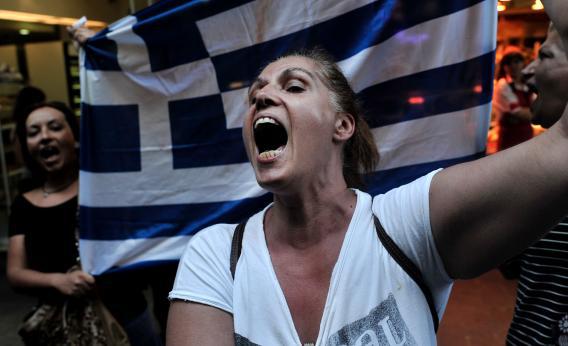Over at XX Factor, Katy Waldman discusses the Internet’s odd obsession with introversion, chalking it up to the structure of the Web itself, which allows introverts and shy extroverts to “interact from a distance, take time to compose their thoughts, and present a safe, curated image to the world.”
That’s great news for the future of clickbait listicle production, but could it be bad for civic culture? An introvert-friendly culture seems like it wouldn’t be all that conducive to real-world political organizing as opposed to less effective, Internet-driven, “slacktivist” campaigns.
Or maybe not. A study published this month in the journal Political Psychology uses data collected on citizens of Leipzig in the years after the fall of the Berlin Wall in an attempt to discover which of the “big five” personality traits—openness, conscientiousness, extroversion, agreeableness, and neuroticism—factor into a person’s propensity for participation in political protest. Protest propensity, as authors Hermann Brandstatter and Karl-Dieter Opp define it, is a person’s disposition to both “think of participating in political protest as a means of improving the individual and collective socioeconomic situation” and to “act by participation in protest activities.”
You would think that those who scored high in extroversion—defined as those who exhibit the “tendency to seek the company of others, external stimulation, a high level of activities, and [enjoy] being emotionally expressive”—would show a high protest propensity. Street protests provide all of those things in abundance! But in fact, “contrary to the predictions, extraversion turned out to be irrelevant in this context.” Openness to experience, neuroticism, and agreeableness were found to be the significant factors.
It would be a mistake to read too much into this. It’s a limited sample from a very particular historical and cultural moment. And studies from other regions have shown extroversion to be correlated with other types of political activity, such as contacting local representatives. But it’s probably worth keeping in mind that the people willing to go out on the streets with political demands aren’t necessarily the ones you’d expect.
